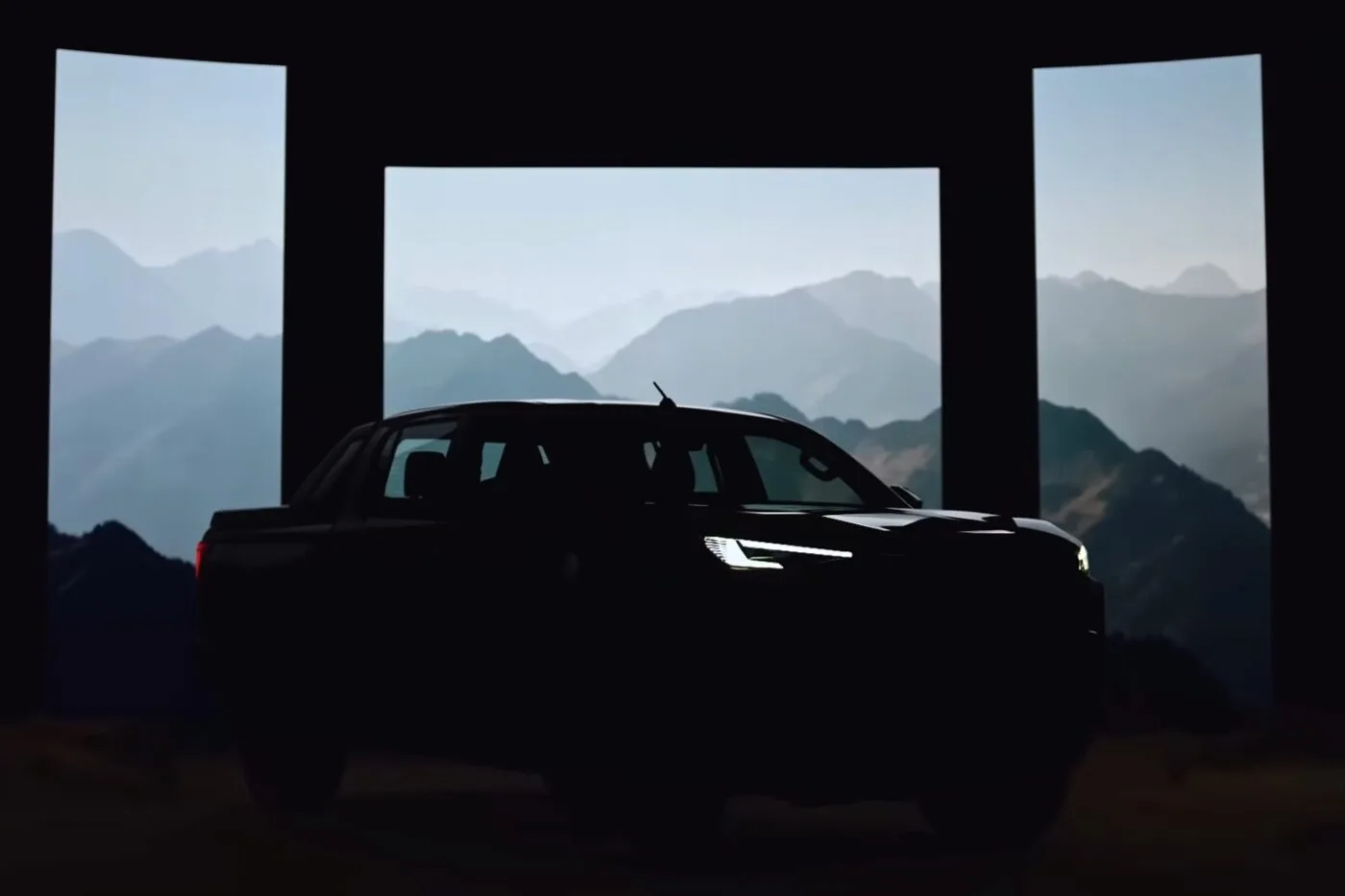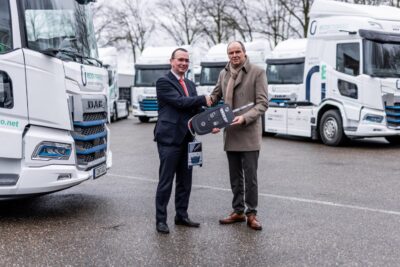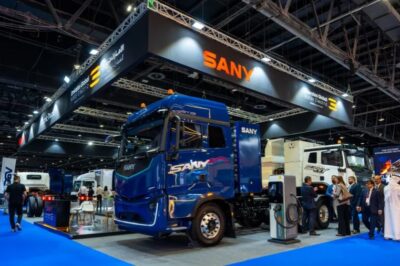Toyota looks set to debut fully electric Hilux
This is all based on speculation, albeit with some substantial evidence. At a press briefing for journalists from the SEA region, Toyota shared a presentation slide containing new models planned for the near future. This slide showed a blacked-out silhouette of a pickup as well as Toyota’s clearly visible BEV (battery electric vehicle) logo. Despite the fact that the Japanese automaker did not name the model specifically, it is more than obvious that it is an electric Hilux variant.
Toyota previously used the Hilux Revo BEV prototype, first presented at the end of 2022, for various trials in recent years – including use of the flatbed truck in both Thai and Australian mines. The practical test appears to have been a success – Pras Ganesh, Executive Vice President of Toyota Motor Asia, announced a production version of the electric Hilux to the Reuters news agency back in May 2024. It is set to be built in Thailand from the end of 2025, which would coincide with the launch of the ninth generation of the Hilux. Its official unveiling was announced for November 10.
Pickups account for around half of all new car sales on the Thai market, which is why the new model is primarily tailored to the Southeast Asian country. The Japanese carmaker still dominates the segment: in June 2025, Toyota’s Thai market share for so-called “1-ton pickups” stood at an impressive 46.4 percent. Behind the Hilux in second place is the Isuzu D-Max, of which a purely electric version has already been unveiled.
In recent years, more and more Chinese manufacturers have been entering the market with their electric or at least consistently hybridized commercial vehicles. This would also explain why the Japanese automotive giant, which has been rather hesitant when it comes to battery-electric drives, is planning a BEV version of the Hilux of all vehicles.
Changes remain unclear
It is questionable how much will change technically with the switch from the eighth to the ninth Hilux generation – the drive technology of the electric series version is likely to be largely the same as that of the Revo BEV prototype. Otherwise, the findings from the field trial would have been of little value.
Toyota manager Ganesh told Reuters that the range would be around 200 kilometers, but did not elaborate on the standard on which this figure was based. According to him, however, the battery is unlikely to be too large, as this would result in a high vehicle weight, which in turn would have a negative impact on the payload. The online platform autoblog.com speculates about ranges of more than 400 kilometers, which is probably a bit high.
Toyota sticks with ladder frame
The pickup truck is considered indestructible and therefore enjoys an excellent reputation around the globe. The Hilux is one of the best-selling vehicles in the world and has sold over 18 million units since the original model was launched in 1968. Its robust ladder frame construction is one of its greatest strengths, which is why Toyota will retain this concept in the next edition.
Whether the upcoming electric version will also be exported is still unclear. In addition to Thailand, Australia, the Middle East, Africa, and Latin America are among the pickup’s most important sales markets. Of course, the automotive giant will continue to offer the model with conventional combustion engines and hybrid drives.
An initial teaser video has shown that the Hilux will have a completely redesigned front end, which is likely to be more aerodynamic than before. Toyota also worked on a fuel cell-powered Hilux for a time, which has already been tested on public roads. However, it is questionable whether this will ever go into series production.
In 2026, the Japanese manufacturer plans to introduce another electric pickup truck alongside the Hilux BEV, which is likely to be called the EPU and tailored to other markets.
reuters.com, autoblog.com, drive.com.au
This article was originally published by Elias Holdenried for electrive’s German edition





0 Comments